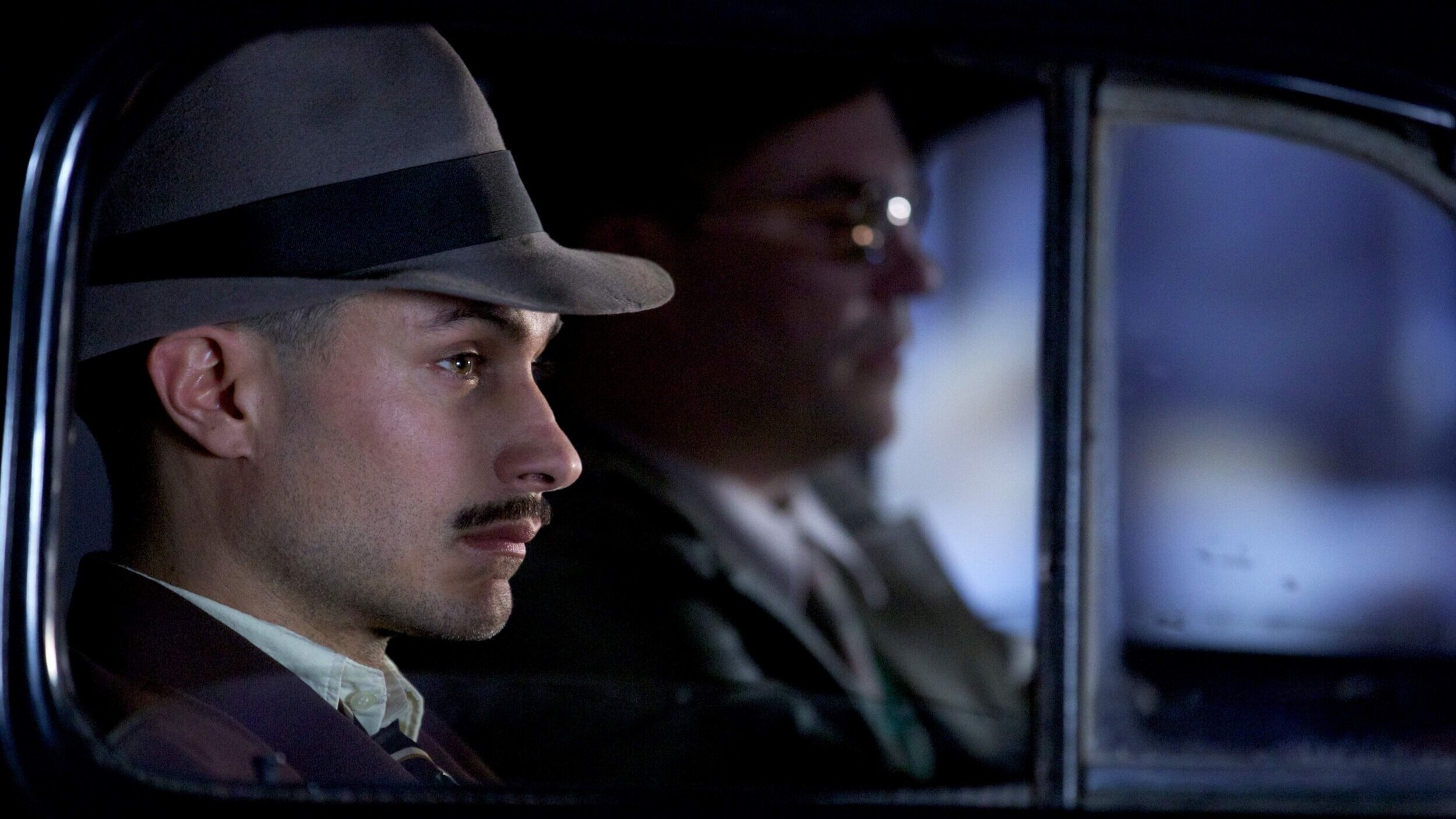Neruda
A famous political poet viewed in a totally unexpected way.
Gael García Bernal and Diego Muñoz
Born in 1976 the Chilean Pablo Larraín has over the past decade became the most prominent filmmaker in his country. So much of his work has been concerned with Chile's social and political history over the past half century or so that on paper Neruda, from a screenplay by Guillermo Calderón, suggests a characteristic piece. After the unexpected and successful switch into English language cinema with his recent Jacqueline Kennedy movie, it seemed likely that Neruda would be a reversion to his more familiar style of filmmaking. But in the event this film no less than Jackie turns out to be an intriguing move into new territory.
I rather wish that I had appreciated that in advance because I was not really ready for Larraín's adventurous approach here. We encounter the poet Pablo Neruda, the Nobel Prizewinner to be (Luis Gnecco), in the year 1948 when he was a senator at odds with Chile's President Videla (Alfredo Castro). The latter under the influence of America was eager to harass Communists and thus Neruda, duly impeached, became a prime target. When a police official, Oscar Peluchonneau (Gael García Bernal), sets out to arrest him, he goes into hiding together with his wife Delia (Mercedes Morán), but his situation as a fugitive poet would increase his fame and he would be championed by the likes of Picasso (Emilio Gutiérrez Caba).
Thus far Neruda suggests the kind of realistic biopic that one would expect, although one notes early on that a voiceover is providing comments on the people seen and on what they say which is done in a style different from that of the traditional narrator. Before long, however, it becomes clear that the person making these observations is Peluchonneau himself. But, if that brings in a degree of stylisation, it is as nothing compared with what is offered in the film's second half. Following a long cross country pursuit of his target, the policeman starts to speak of himself as though he is not a real person but a creation of Neruda’s. You might be inclined to put that down to hallucinating madness, but Neruda goes along with it suggesting that, if the Peluchonneau we see shows his determination to be more than a secondary character in Neruda's life, the poet no less wanted to build up the legend of the man who hunted him. Then, in a conclusion closer to surrealism or magic realism than to naturalism, the two men become fused (as creator Neruda can set up his hunter's death but he can survive it because the man who dies was not flesh and blood in the first place but Neruda's version of him).
Some of the dialogue is high-flown early on, but Larraín’s approach to Neruda makes this a formidably intellectual film and all the more so as it goes on. Larraín's many admirers will want to see how he adopts this new style and had I been expecting it I might have been more ready to give the film a higher rating. But my readers stand forewarned so can go and see for themselves. Whatever your verdict you cannot fail to be impressed by Chile's answer to David Suchet, Luis Gnecco, who is totally persuasive in the title role.
MANSEL STIMPSON
Cast: Luis Gnecco, Gael García Bernal, Mercedes Morán, Alfredo Castro, Emilio Gutiérrez Caba, Pablo Derqui. Michael Silva, Francisco Reyes.
Dir Pablo Larraín, Pro Renan Artukmaç, Peter Danner and Juan de Dios Lorraín, Screenplay Guillermo Calderón, Ph Sergio Armstrong, Art Dir Estefania Larraín, Ed Hervé Schneid, Music Federico Jusid, Costumes Muriel Parra.
AZ Films/Participant Media/Fabula/Funny Balloons-Network Releasing.
108 mins. Chile/Argentina/France/Spain/USA. 2016. Rel: 7 April 2017. Cert. 15.


